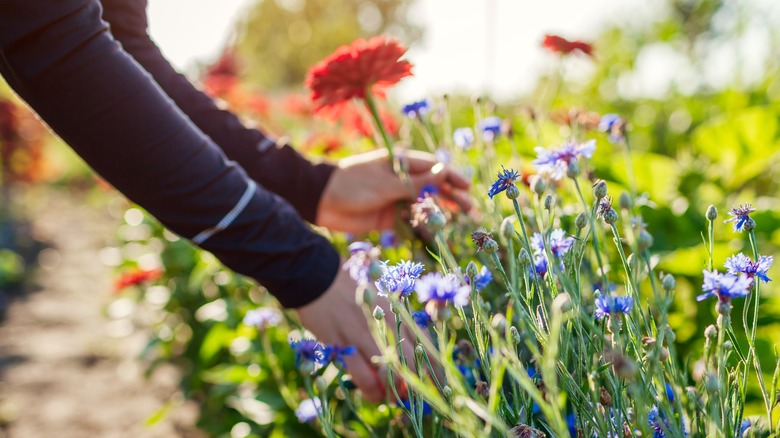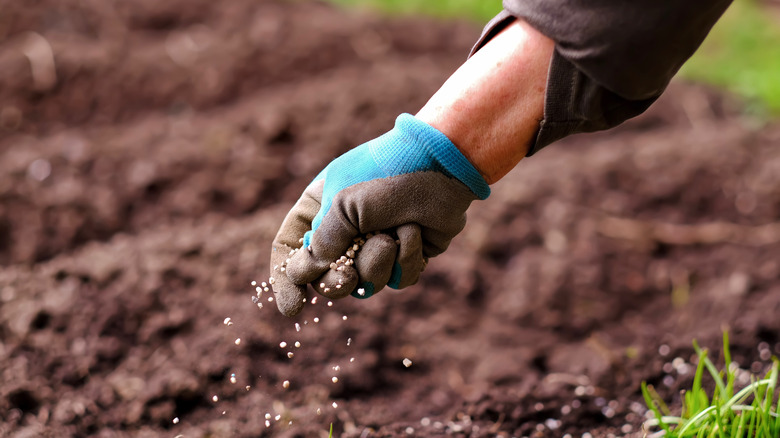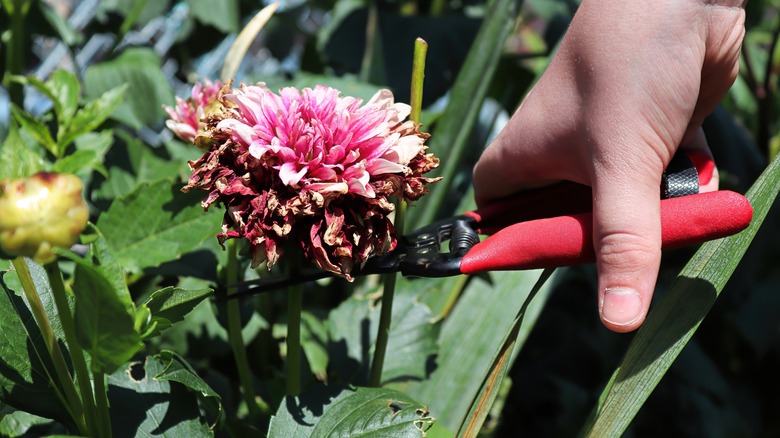How To Home Grow Flowers Meant To Be Bouquets
We may receive a commission on purchases made from links.
Placing a freshly cut bouquet of flowers on your kitchen island or dining room table will brighten up your whole house and give it new life. However, maintaining this decoration can get quite pricey. For example, at Walmart, the cheapest bundle you can find costs $4.97, but it's pretty small, so you may need a few of these to fill a vase.
Instead of buying your flowers every week, what if you could simply walk into your backyard and cut them yourself? Not only will this give you a much larger supply of bouquet flowers for less money, but it will also add color and beauty to your yard. Another benefit of growing a cut flower garden is that you can be more picky about the species you display in your home. Maybe you're not a fan of a certain type of variety that's often used in grocery store bouquets. If so, you could only plant the kinds you love and keep out the types you don't to create arrangements that are perfectly suited to your tastes.
Creating the garden
To begin, choose a variety of different hearty flowers that grow best in your specific climate. Prioritize annuals, perennials, and bulbs that feature long stems, as these are the best types for bouquets. You may also want to consider planting a certain color palette, such as all warm-toned or cool-toned colors, and add filler plants like greenery and baby's breath.
Next, you'll need to find the right location, and a patch of ground that gets lots of sun is best. While you could plant the flowers right in the ground after mixing in fertilizer, potting mix, and compost, if you think your soil isn't suitable, you could place these materials inside raised garden beds or pots instead. To plant the seeds and bulbs, simply follow the directions on the back of each packet. Plant the same kinds together instead of scattering them, making maintenance and harvesting easier. Also, make sure to maintain clear pathways so you can reach all the flowers when it's time to cut. To keep weeds from growing on the path, you could install mulch or landscaping fabric, which could be purchased on Amazon.
Maintenance and harvesting
Once your flowers are in the ground, it's all about maintenance. Just like with any other garden, you'll need to stay on top of watering, fertilizing, and weeding. However, there's another crucial task you'll need to complete regularly, and it's called deadheading. This involves removing any dead blooms or leaves, which will allow all the plant's energy to go towards the best blooms and prolong its life.
When you're ready to harvest, head out to the garden with a bucket filled with water and collect as many flowers as you desire. To cut, snip at the base of where the flower's stem meets the rest of the plant, then place them in the water and leave them in the bucket for a few hours. After the time has passed, cut the stems at an angle and arrange them in fresh water, which you should switch out every day. Once you're done harvesting for the season, collect seeds for next year by letting the flowers go to seed and shaking the blooms over a bag.


